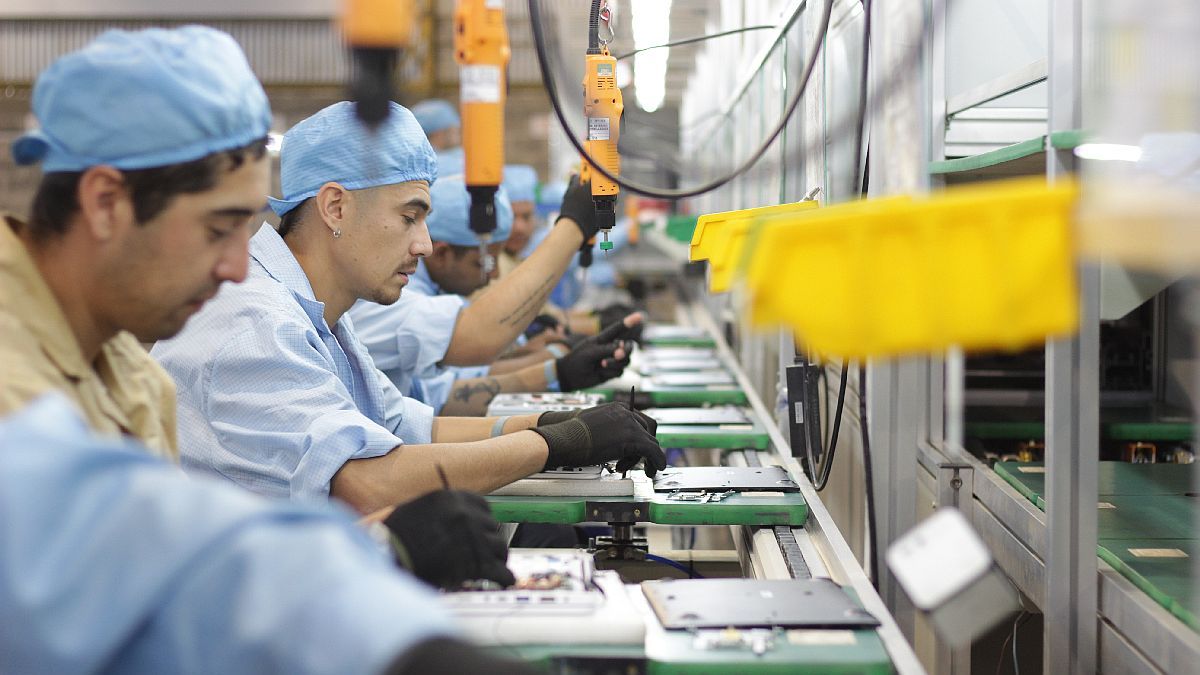Daniela Ramos (industrial policy), Javier Cardini (productive management), Esteban Marzorati (foreign trade) and Fernando Martín Blanco Muiño (consumer defense) are those formally chosen to outline the future of the industry during the administration. They accompany the Secretary of industry and productive development, Juan Alberto Pazo.
Since he took over Javier Milei to the presidency, economic activity – which in 2023 fell 1.6% GDP – accelerated its debacle and the installed capacity finds the pandemic as the stage in history that most resembles the current situation.
In this context, small and medium-sized companies plan a meeting with officials belonging to the areas defined in the organizational chart, through the decree 293-2024, published on Friday the 5th of this month. Once again, they will seek to put on the table as a matter of urgency the claims and needs of a sector that, until now, has not had a leading role in the Government’s agenda.
The emergencies of a neglected sector
Mauro Gonzalez, head of the General SME Confederation, maintains the need for the meeting with the following data: “In the first two months of the year we recorded a drop in activity of 30% on average, a rise in energy of 200% and the same in rents.”.
This led, according to Gonzalez, to the application of various strategies to avoid the separation of personnel, such as reduction of shifts in factories, suspensions either advances vacation.
At the same time, within the framework of the publication of the manufacturing IPI, the INDEC indicated that the fall in industrial production was 9.9% year-on-year and 11.1% in the first two months of 2024 compared to the same period last year.
The loss that the indicator alerts, defined as “impressive and resounding” by a sector source, leads companies to demand policies that promote the offer of productive projects. That is why, for Gonzalez, it is required “activate Non-Refundable Contribution (ANR) programs, implement interest rate subsidies for credit, remove or reduce taxes on exports of industrial goods and imports of inputs for the activity”.
Who they do maintain dialogue with since their inauguration is with the Secretary of Commerce Pablo Lavigne, but the head of the General SME Confederation warns that the conversations remain unfinished, the lack of answers is felt and the state apparatus directly “It’s stopped”.
Money and planning, key elements that are on hold
If González brings the data, then Julián Moreno, president of APyMe, accompanies him with the questions. The first one that arises in the entire State organization chart is the same:They already have the resources assigned?
The question is substantial. As advanced Ambit, the Government completely stopped disbursements in the most relevant programs that were intended to promote initiatives in the sector. The Supplier Development, Industrial Parks and Competitiveness Support, among others, have so far zero budget execution.
“SME industrialists are enduring an unprecedented drop in sales and an increase in dollar costs of energy and fuel, which makes subsistence and maintenance of jobs, which cost a lot to train, unviable.“, highlights Moreno.
Another sensitive issue for companies has to do with the flexibility of imports of food and some hygiene and personal cleaning goods. ¿They agree with the opening of imports, despite the fact that a large part of the local industry would not resist competition from developed countries that have subsidies.?, Moreno wonders.
After the request to companies to eliminate promotions or discounts and clarify the price of the unit, the Minister of Economy Luis Caputo relied on X’s account called “Jumbobot“, to ensure that inflation “is collapsing” and that deflation is already being recorded in food and beverages. Not only is the bot fake, but the wallet already has its own price survey system, called SEPAbut it is not publicly mentioned.
The Undersecretariats will have programs and regimes in charge such as that of Argentine Auto Parts, Investment Promotion in the Automotive Industry, Land of Fire, Capital Goods Manufacturers, Customs in Factory either Naval Promotion.
The question raised by a source has to do with the scope for real action, considering an economic model that not only displaces the industry from the center of the program, but also maintains a DNU in force that eliminated other key legislation for the sector, such as Buy Argentine Law and Supplier Development.
“Daniela is respected in the industry, but they are going to let her do little and nothing”, specified the same source. Until her assumption in the Mileista government, she was Secretary of Labor and Production of the Municipality of Tres de Febrero, led by Diego Valenzuela. One piece of information could anticipate her experience: she intended for the National Supplier Development Program (PRODEPRO) to be in her portfolio, but the elimination of Compre Argentino prevents this.
In any case, businessmen highlight that the bridges of dialogue are open, although still without concrete results. Daniel Rosatohead of Industriales Pymes Argentinos (IPA), is one of the SME representatives who was already able to meet Ramos, for example.
However, the figure demanded throughout the SME sector is its own Caputo. Until now, they warn from within, it did not make a space on the agenda, despite repeated requests for a call.
Source: Ambito




